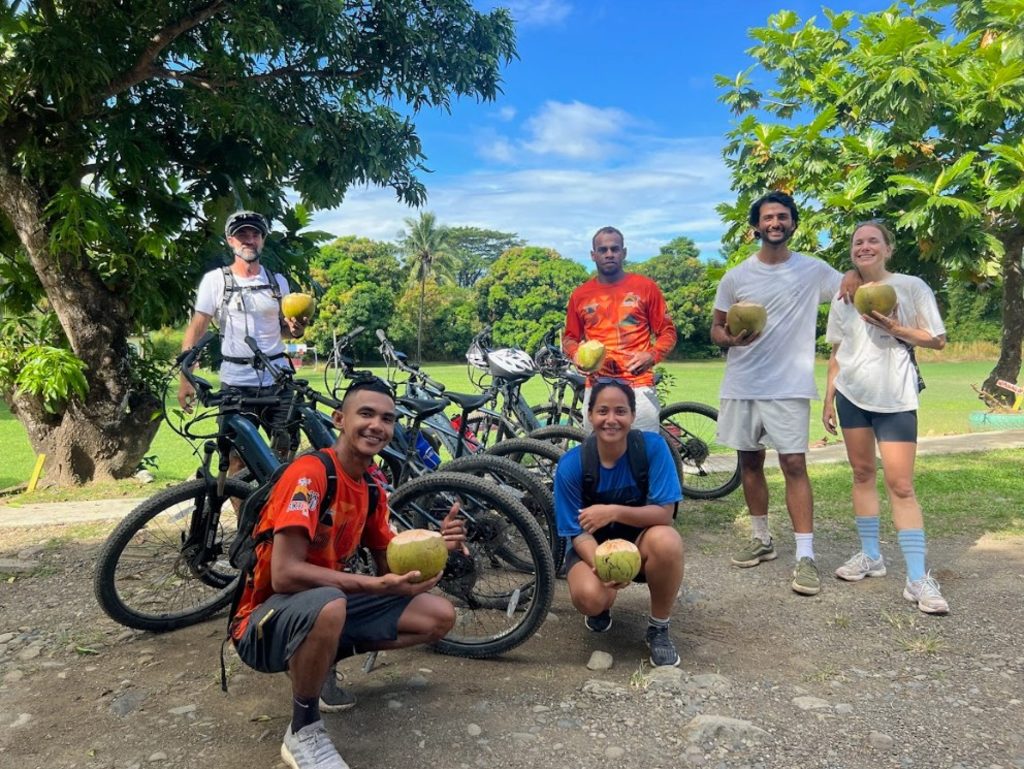ADVENTURE is at the core of iBike Fiji — a family-run business born from a love of exploring the diverse landscapes of Fiji, from its lush hills to its vibrant coastline.
Brad Campbell is an American who moved to Fiji in 1998, and lives on the Coral Coast with his wife and family.
They have also been running a boutique shop at Outrigger Resort for the past 17 years.
He founded iBike Fiji to provide guests with intimate, spontaneous adventures and a unique view of Fiji.
Joining Mr Campbell on this endeavour is his daughter and Fijian environmentalist Ren Slatter, who shares her father’s passion for adventure, nature and entrepreneurship.
Together, they have embarked on a mission to make iBike Fiji a reality, determined to create unforgettable experiences for adventurers of all ages and abilities.
Ms Slatter who was raised on the Coral Coast, pursued a career in marine tourism as a liveaboard captain and dive instructor abroad.
Growing up on the Coral Coast, Ren was always outdoors – surfing, cycling, hiking, snorkeling.
When the opportunity came, she left Fiji to work internationally as a captain and scuba dive instructor on various liveaboards, gaining extensive experience in marine tourism and adventure travel.
Upon returning in 2022, Brad and Ren co-founded Salty Dog Adventures, a growing private boat charter business, which later expanded into iBike Fiji — offering e-bike tours.
Mr Campbell said Ren’s adventure tourism expertise has been the key to their success.
In 2024, iBike Fiji was officially launched and it filled a gap in the local tourism scene by offering something truly unique.
“It was an immersive, eco-friendly e-bike tours that venture far beyond the resort gates,” Mr Campbell said. He said adventure runs through their blood and they’ve always been out and about exploring Fiji’s land and sea going surfing, hiking, biking, paddling and other activities.
“We saw a great gap in the tourism space with regards to cycling, which is such a valuable way for tourists to discover a country,” he said.
“It’s active, outdoors, eco-friendly and you can create immersive experiences. That’s exactly what we aim to offer with iBike Fiji.”
He said the concept came from combining high-quality off-road e-bikes with an authentic local experience that’s both adventurous and low-impact.
Mr Campbell shared that what makes them unique is that almost all activities around Nadi (and Fiji in general) are water-based, for obvious reasons.
“What sets iBike Fiji apart is its heart — its dedication to community, its respect for nature, and its passion for showing guests the real Fiji.”
He said their off-road routes takes you through sugarcane fields, local farms, backroads, and coastal views that most visitors never get to see.
“It’s active, real, and personal, nothing is staged, and what you see can vary from day to day. During cutting season, riders can meet sugarcane farmers toiling the fields.
“During the mango season, we will stop beneath laden mango trees while our guides share stories of their childhood in Fiji.”
iBike Fiji offers a four-hour experience, including pick-up and drop-off in Nadi and Denarau.
The cycling itself takes about two hours including stops, in a trail of roughly 16km.
The sugarcane trail is their main experience and a guest favourite.
Mr Campbell said it’s a loop that starts from Votualevu Cemetery, with sweeping views, gentle hills, and stops where guides share stories and for fresh fruit and coconuts. He stresses the tours are suitable for all fitness levels and age groups as long as guests are confident with riding a bicycle.
The e-bikes do most of the work, so it’s accessible to a wide range of fitness levels.
Mr Campbell said they’ve had guests aged 14 to 70 plus years.
He said all their tours use high-end electric mountain bikes as they’re built for off-road, making the ride smooth and enjoyable.
When it comes to incorporating Fijian culture and community, Mr Campbell said their tours are always guided by locals.
“They are the heroes of our tours and not only ensure a smooth and safe ride, but share stories about the history of Fiji, the culture and flora and fauna.”
At the halfway stop, guests enjoy local fruits and coconut water. The ride offers a genuine glimpse into everyday Fijian farm life, featuring scenes like bullocks, goats, farmers, and children on horseback — presented respectfully and authentically, not as a performance.
Mr Campbell said they have close ties with Bulaccino, who run a farm along the route they cycle.
By ensuring sustainability and respect for the local environment, iBike Fiji avoids single-use plastic, keep group sizes small and choose routes that minimise the environmental impact.
In order to ride responsibly and tread lightly, electric bicycles are zero-emission vehicles and leave minimal impacts on our roads. The riders are encouraged to leave the land as they found it.
“We are also a member of the Duavata collective, where we are connected with like-minded tourism operaters who believe tourism should enhance cultural heritage and the environment,” Mr Campbell said.
The guiding team are locals from Sabeto, and they bring extensive knowledge of the cycling area. They are trained in first aid, bike safety, and guest service, with a strong emphasis on both safety and creating a personal, authentic experience.
While following established guidelines, the guides are empowered to shape memorable journeys for guests, consistently delivering exceptional service.
Mr Campbell said every tour is prepped the day before — checking bikes, confirming weather conditions, prepping hydration and snacks, final communication with the guests and other necessities.
He said a memorable highlight for many guests was stopping under a mango tree while guides climb up to pick fresh fruit —an authentic and enjoyable experience, especially when in season.
“Once we ran into an old Indo-Fijian lady who made us taste some of the peanuts she was planting and shared her traditional curry recipes with the guests.”
Mr Campbell shared that guests are often thrilled during and after the trip, as it reveals a side of Fiji they wouldn’t typically see.
For many, who rarely venture beyond Denarau, the experience becomes an unexpected highlight of their visit.
The iBike experience offers much more than just scenic views of Nadi Bay, the Sleeping Giant and the Nausori Highlands.
Mr Campbell said the future plan for iBike Fiji is to expand to the Coral Coast and possibly the islands, while keeping it small-scale and community-driven.
“The focus is always on quality and impact, not volume,” he said.
His message to guests that visit iBike Fiji is that there’s more to Fiji than just beaches and resorts.
He said it is a place of real beauty, warm people, and open spaces — best experienced from the seat of a bike.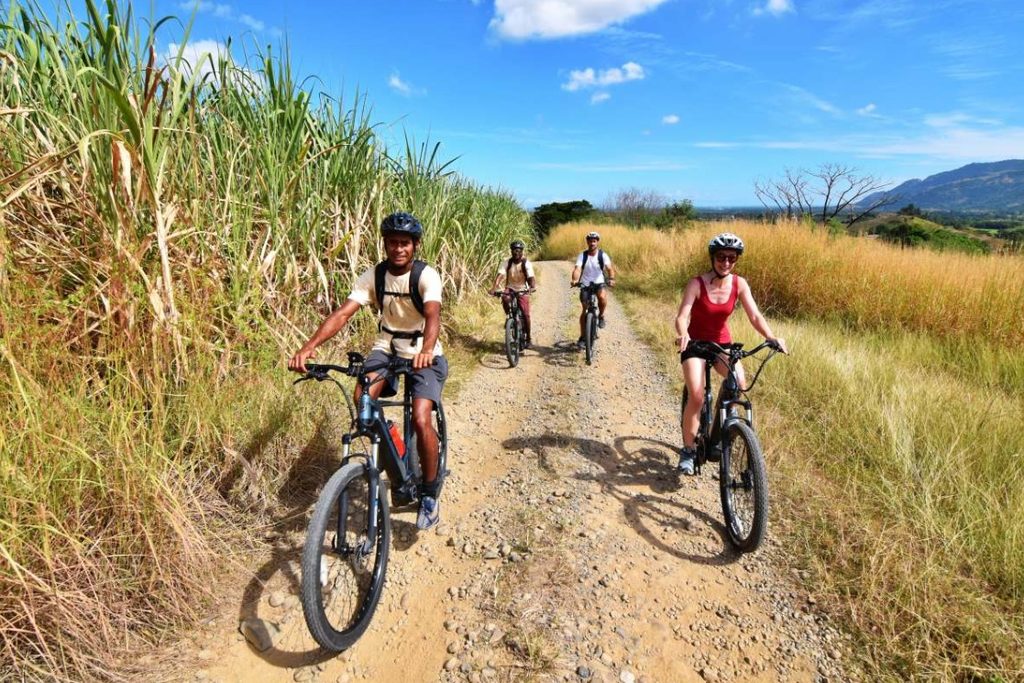
The guiding team are locals from Sabeto, and they bring extensive knowledge of the cycling area.
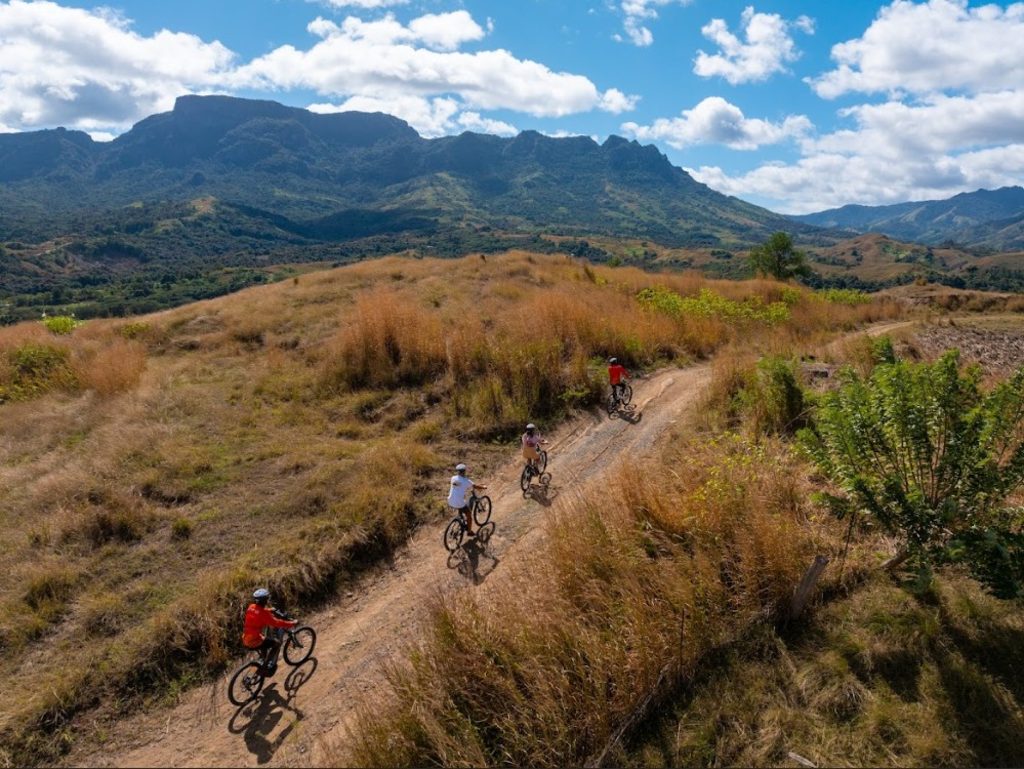
The iBike experience offers much more than just scenic views of Nadi Bay, the Sleeping Giant, and the Nausori Highlands. Picture: SUPPLIED
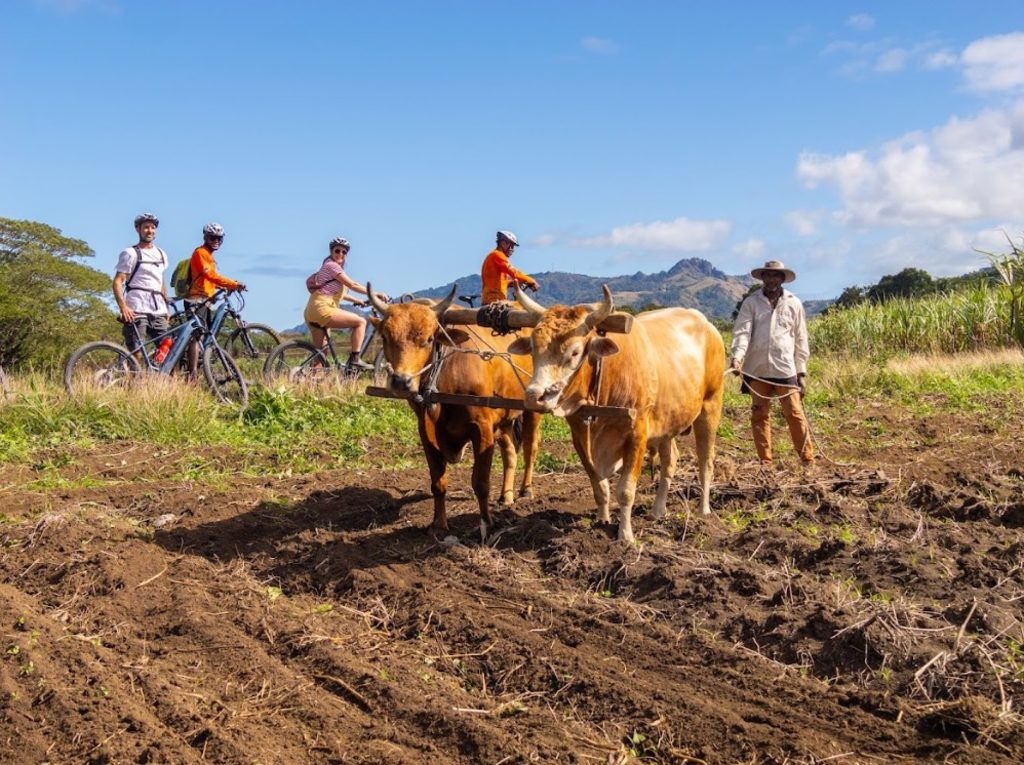
In 2024, iBike Fiji was officially launched and it filled a gap in the local tourism scene by offering something truly unique.
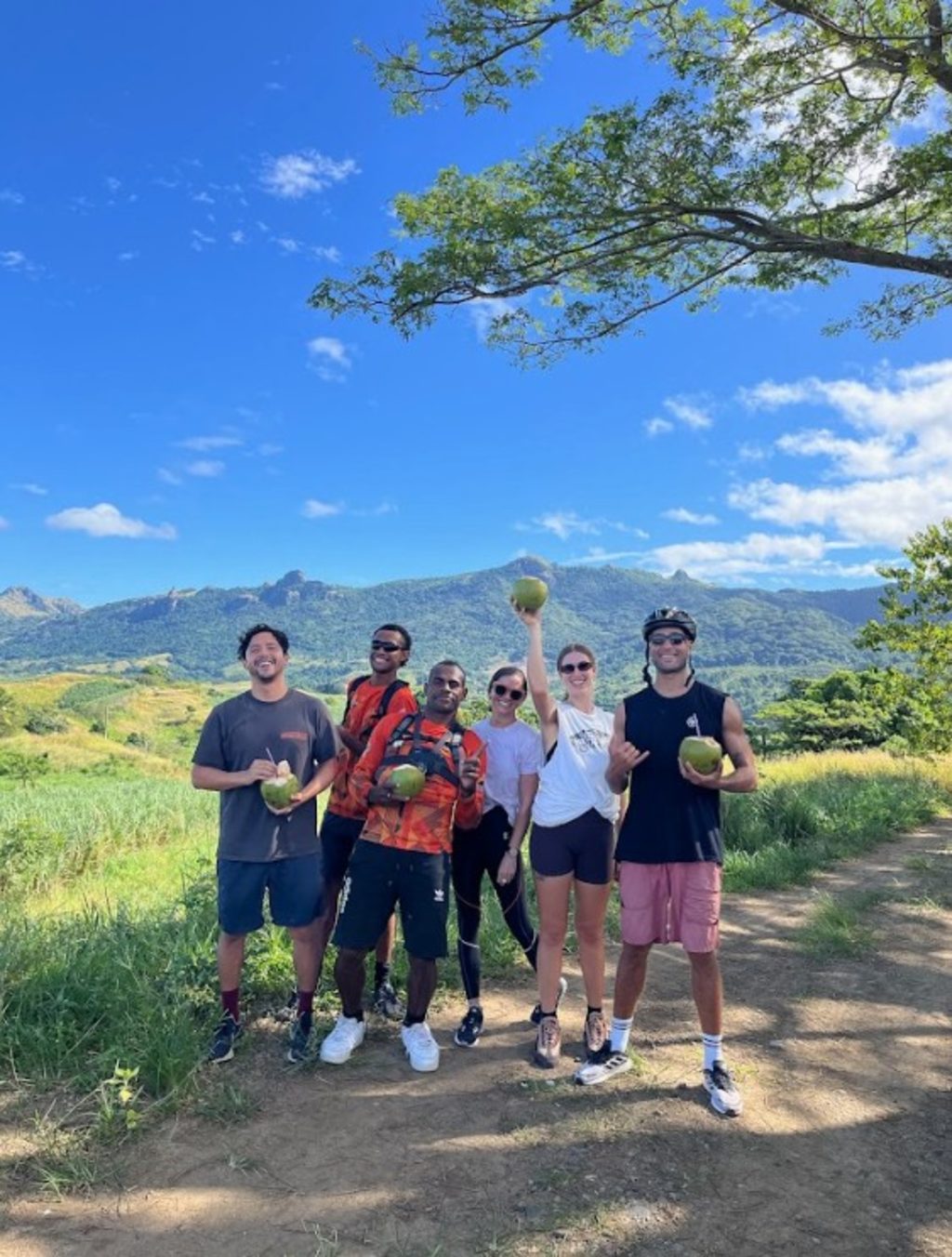
While following established guidelines, the guides are empowered to shape memorable journeys for guests, consistently delivering exceptional service. Picture: SUPPLIED

